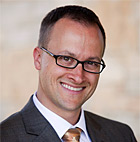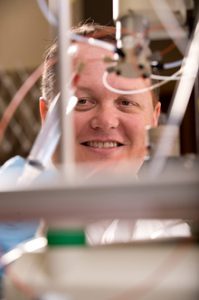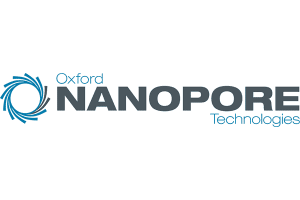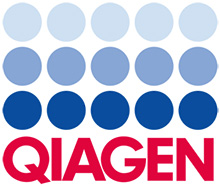Alumni Profile:
I knew I was capable of more.
Ask graduates of the University of Wisconsin-Madison Master of Science (M.S) in Biotechnology program why they pursued this advanced degree and you will hear a familiar refrain—“I wanted more.”
And so it was with Charles Dokken who, prior to graduating from the program, was a leader in a clinical lab. Leader or not, he was “still unsatisfied. I knew I was capable of more.” Dokken was well-trained in the clinical realm, but his on-the-job experience led him to believe there was more opportunity available to him if he could meld science and business. “The idea of mixing business and science became more interesting to me,” he explains. And so he enrolled in the Master of Science in Biotechnology program.
The result? Having graduated, Charles now manages business development for the largest genomics lab in the world, based in China, and has tripled his salary.
Intense mix of business and science.
Originally, Dokken had considered an MBA program. “While I was technically advanced,” he notes, “my business knowledge was all self-taught. An MBA would have taken me five years, without direct relevance to the biotechnology field. The Master of Science in Biotechnology was at an accelerated pace, and guaranteed I could be done in two. The mixture of science and business was exactly what I needed. It was the right content, taught by the right people, at the right moment in my career. And the business content was specific to biotechnology—completely aligned with the process by which new biotechnology products are developed.”
He continues, “Everything in the program is integrated—science, project management, business, intellectual property. All subjects bleed into one another and this is how it works in the real world. You don’t work in a vacuum.”
In his current position, Dokken explains, “I identify new targets for development. I work with industry, pharmaceutical companies and academia so I have to be able to understand intellectual property, the science behind the products and business. I have to be able to collaborate and strategize. Those are skills I developed in this program and I use them all the time. Because of these courses, I’m knowledgeable.”
The keys to career advancement? Communication and confidence.
Comprehensive knowledge—from the science of discovery to the business of development—has provided Dokken with his two greatest takeaways from the program: the ability to effectively communicate and the confidence to do so.
“Every component of the coursework involved thoroughly communicating ideas,” he explains. And that was critical because, as Dokken notes, “You’re worthless in this industry if you can’t communicate. You have to be able to communicate novel ideas to a variety of parties.” The Master of Science in Biotechnology program consists of intensive coursework, presentations from academics and industry leaders, group projects and presentations—not exams. “We had to give four or five presentations each semester and had to moderate panel discussions so our cohort became very close. It became less nerve-wracking to give presentations because I was presenting in front of my friends. When I started the program I had a fear of speaking in front of people. Now, that’s what I do for the majority of my job.”
He elaborates, “It’s the confidence you gain from understanding the business and science. I’m ahead of people who’ve done this for 10 or 15 years because of the broad curriculum. I know how to commercialize new technologies and now, if you put a task in front of me, I know I can do it.”
The result?
Dokken has not only tripled his salary since graduating, he’s realized complete career satisfaction working for a global company. “This job is a direct result of the program—and it doesn’t feel like work to me. It’s fun and thrilling. I closed a seven-figure deal recently and everything I learned in the program contributed to that happening.” He concludes, “I wanted this program to be a game changer for me—and it was.”
Dokken completed years of service as a Senior Technical Sales Specialist with the global biotechnology company, QIAGEN. Dokken manages global distribution partnerships, something he claims he could not have done without his experience with the Master of Science in Biotechnology Program.
In spring of 2022, Dokken as shifted his focus toward corporate strategy and business relations by accepting a position as Associate Director of Clinical Market Development with Oxford Nanopore Technologies.
This is an accordion element with a series of buttons that open and close related content panels.
Questions about the M.S. in Biotechnology Program?
Contact Bryan

“I specialize in helping prospective students understand the degree, how it fits their career goals and how to apply for admission.
Please contact me. You’ll receive a prompt response.”
Bryan Husk, Assistant Director
(608) 265-0773 office
bthusk@wisc.edu
LinkedIn Profile
About the M.S. in Biotechnology, UW-Madison
Established in 2002, the Master of Science in Biotechnology at UW-Madison is a two-year cross-disciplinary program for scientists, technical professionals, business strategists and attorneys seeking to advance their career in the biotechnology industry without having to put their career on hold.
The project-based curriculum focuses on the development and commercialization of new technologies and provides a diverse mix of science, business, bioethics, regulatory policy and patent law.
Students are instructed by world-renowned scholars and leading industry professionals in the biotechnology field. Graduates join a powerful professional network of over 350 alumni.

Chuck Dokken, M.S.
Class of 2009
Associate Director, Clinical Market Development
Oxford Nanopore Technologies

